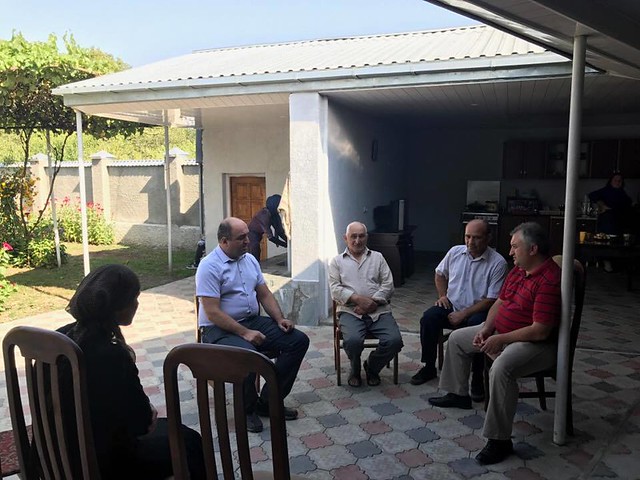Probe into Crime Committed during Lapankuri Special Operation Pending for 5 Years
Five years have passed since a number of people, including representatives of both the Georgian law enforcement agencies and the armed groups, were killed in a special operation conducted in the village of Lapankuri on August 28-29, 2012. The investigation into the crime is still pending.
On August 27, 2017, in the village of Duisi, the Public Defender of Georgia met with the Kist families, the members of which were killed in the special operation. He also visited the mother of Archil Chokheli, a member of special forces, who was killed in Lapankuri. The relatives of the deceased are still waiting for the investigation of the crime. So far none of the families have been recognized as victims, and therefore, they have no access to the case materials. Neither the expertise report nor the results of the exhumation are available for them.
In order to effectively protect the interests of the victims and due to the high public interest towards the issue, the Public Defender of Georgia set up a public council on October 22, 2013, the aim of which was to study and document the violations of human rights and freedoms committed during the special operation.
As a result of the report issued by the public council in 2014, the Public Defender of Georgia addressed the Parliament of Georgia with a recommendation to establish a temporary fact-finding commission, which would study the Lapankuri case. However, unfortunately, the Parliament of Georgia did not consider the recommendation.
The alleged human rights violations and offenses committed by law enforcement agencies during the special operation, as well as gaps in the investigation process, were discussed in detail in the Public Defender’s reports.
The Public Defender of Georgia urges the investigative bodies to timely and effectively investigate the crime. At the same time, he once again expresses dissatisfaction over the fact that his proposal – creation of an independent investigative commission – was unreasonably rejected without any grounds.
The indifferent attitude of the state structures towards similar offenses directly refers to a low level of the protection of human rights and accountability of the state agencies, which in turn harms and prevents the democratic development of the country.
















